
RFID (Radio Frequency Identification) technology has gained wide acceptance across various industries in recent years. As a contactless method of data transmission, RFID enables efficient and convenient data collection through wireless signal exchanges between readers and tags. With advancements in technology, the application of RFID has evolved from traditional inventory management to more specialized needs, including medical equipment tracking, logistics management, and even smart home integrations in daily life.
The emergence of RFID laundry tags has increasingly drawn the attention of industry decision-makers, particularly in the hotel, healthcare, and commercial laundry services sectors. In these industries, fabric management involves not only hygiene and compliance but also directly impacts operational efficiency and customer satisfaction. How will RFID laundry tags transform the fabric management practices in hotels, healthcare, and commercial laundry services?
1. Basic Concept of RFID Laundry Tags
RFID laundry tags are tiny electronic tags embedded in fabrics that use radio frequency technology for data transmission. They typically consist of three components: an RFID chip, an antenna, and a protective tag casing, which can be either soft or hard. The chip stores specific information or data, the antenna is responsible for transmitting and receiving signals, and the casing protects the internal components from external environmental factors. In laundry management, RFID tags can be quickly scanned using RFID readers to obtain real-time information about the current status of the fabrics.
Features of RFID Laundry Tags:
High Durability: Made with special materials and encapsulation techniques, RFID laundry tags can withstand high temperatures and rigorous washing and drying processes, making them ideal for high-intensity commercial laundry environments.
Contactless Operation: Unlike traditional barcodes, RFID tags do not require physical contact with the reading device to transmit information, thereby significantly improving operational efficiency.
Efficient Tracking: RFID tags can read multiple tags simultaneously, eliminating the tedious process of manual scanning one by one, which greatly enhances efficiency, particularly when managing large quantities of fabrics.
Precise Record Keeping: RFID tags can provide detailed information for each item, including item number, storage location, cleaning status, and more, ensuring accurate tracking of all laundered items.
With these characteristics, RFID laundry tags not only optimize the laundry process but also bring substantial management benefits to industries such as hotels, healthcare, and commercial laundry services. In the following sections, we will explore the applications and impacts of RFID laundry tags in specific industries.
2. Applications and Impacts of RFID Laundry Tags in the Hotel Industry
In the hotel industry, fabric management is a critical component. The cleanliness of linens, towels, bathrobes, and other items directly influences the guest experience and the hotel’s operational efficiency.
Specific Applications of RFID Laundry Tags in the Hotel Industry:
Automatic Tracking of Linens and Towels: Hotels can affix RFID tags to each item, such as linens, towels, and bathrobes. With an RFID system, hotels can track each item’s cleaning and replacement cycle in real-time, preventing oversight or incorrect distribution. For example, when linens need to be changed, the system automatically records this and ensures timely cleaning and return.
Fabric Inventory Management and Turnover Monitoring: Through RFID tags, hotels can monitor the whereabouts of each item while gaining real-time insights into their cleaning, drying, and storage statuses. This allows hotels to manage laundry inventory more accurately, avoiding excess or shortages and ensuring the availability and quality of room supplies.
Fabric Hygiene Quality Control: The RFID system can log the cleaning history for each piece, ensuring that all items meet hygiene and quality standards. During the washing process, the system can remind staff to follow standard procedures, preventing improper handling and guaranteeing high-quality guest supplies.
Impacts of RFID Laundry Tags on the Hotel Industry:
Improved Laundry Management Efficiency: With RFID technology, hotels can achieve fully automated tracking of laundry items, accurately recording every step from collection to cleaning to storage. Compared to traditional manual management, RFID significantly reduces the risks of loss, misplacement, and misuse. Each laundry, drying, storage, and distribution action can be automatically logged by the system, minimizing human error.
Reduction in Loss and Misappropriation Issues: In large hotels or hotel chains, losing linens, towels, and other items is a common issue that adds extra costs and management pressure. RFID laundry tags can accurately track the movement of each item, greatly reducing the risk of loss. If an item goes missing, hotel management can quickly locate the issue through the system and take remedial action.
Enhanced Guest Experience: High-quality laundry management improves hotel operational efficiency and enhances the guest experience. RFID laundry tags ensure the timely replacement and adherence to high-quality standards for bed linens and towels, reducing guest complaints due to damaged or improperly cleaned items. Additionally, RFID technology can increase guests’ trust in the hotel, boosting overall satisfaction.
Cost and Resource Savings: Although deploying RFID tags requires an initial investment, this technology can save hotels significant labor costs in the long run. Automated management reduces the time spent on manual counting, searching for, and handling laundry items, as well as cuts down on extra costs arising from loss or misappropriation. The system’s real-time monitoring capabilities also help minimize over-washing and resource waste.

3. The Impact of RFID Laundry Tags in the Healthcare Industry
In the healthcare sector, fabric management encompasses hospital linens, patient gowns, surgical scrubs, and other medical cleaning supplies. These items are directly related to patient health and safety, so their cleaning and disinfection management must be rigorously maintained.
Specific Applications of RFID Laundry Tags in the Healthcare Industry:
Tracking Medical Linens and Patient Gowns: Medical facilities often require a large quantity of linens, gowns, and surgical clothes, all of which must undergo high-temperature disinfection and cleaning after each use. By equipping each item with an RFID tag, hospitals can track their usage, cleaning history, and disinfection status in real-time, ensuring that every item meets hygiene standards.
Enhancing Compliance in Cleaning and Disinfection: Linens and patient gowns in hospitals are subject to strict cleanliness and disinfection standards. RFID technology can log the cleaning history of each item, ensuring that they are processed at the required temperatures and according to established disinfection protocols. This not only guarantees hygiene but also ensures that healthcare facilities comply with industry regulations and legal requirements.
Preventing Cross-Contamination: Cross-contamination is a major concern in medical environments, particularly in densely populated areas like hospitals and clinics. RFID tags can meticulously document the cleaning and disinfection processes for each item, preventing errors or omissions during handling and usage. This precise tracking significantly reduces the risk of cross-contamination, safeguarding patient safety.
Impacts of RFID Laundry Tags on the Healthcare Industry:
Ensuring Hygiene Management in Medical Facilities: The hygiene management of healthcare facilities is directly tied to patient well-being, with linens and gowns being critical elements of hospital cleaning efforts. RFID laundry tags help track and record the cleaning history of each item, confirming adherence to high hygiene standards. For example, hospitals can determine the disinfection dates of each item using tag information, preventing the reuse of undisinfected items and effectively curbing the spread of bacteria or viruses.
Increased Efficiency and Compliance: RFID technology automates the recording of cleaning cycles and disinfection status, streamlining the labor-intensive manual inspection processes. Hospital staff no longer need to manually track the cleaning and disinfection status of each item; instead, they can automatically access the latest information through the RFID system, improving overall work efficiency. Additionally, hospitals are better equipped to comply with cleaning standards and regulatory requirements, ensuring that cleaning practices consistently meet set guidelines.
Reducing the Risk of Cross-Contamination in Medical Equipment: Medical equipment and items like patient beds often require thorough cleaning and disinfection, and cross-contamination poses severe health risks. By utilizing RFID tags on these items, hospitals can ensure that every piece is correctly cleaned and disinfected, thus minimizing the risk of cross-contamination and infection due to improper cleaning.
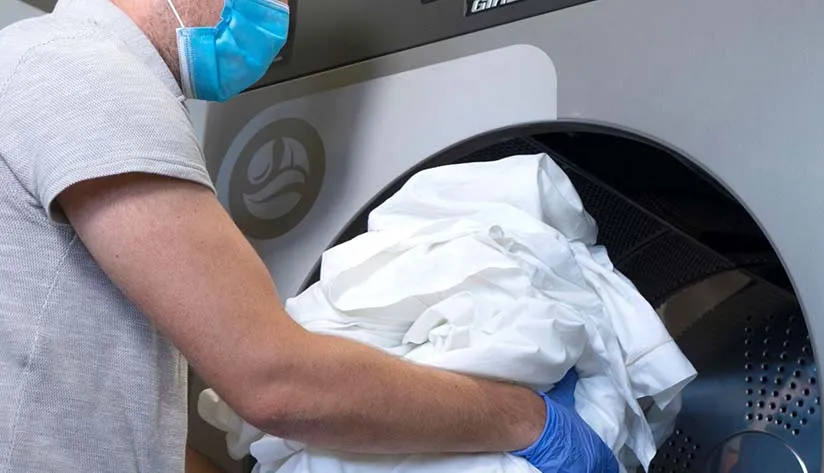
4. The Role of RFID Laundry Tags in Commercial Laundry Services
Commercial laundry services typically involve managing a large volume of washed items along with frequent cleaning demands. Effectively managing these items presents a significant challenge for commercial laundry service providers. The introduction of RFID laundry tags not only enhances item management efficiency but also improves customer responsiveness, providing commercial laundry companies with notable operational advantages.
Specific Applications of RFID Laundry Tags in Commercial Laundry Services:
Enhanced Inventory Management Efficiency: In commercial laundry services, managing laundry items often involves large-scale washing and storage. By utilizing RFID tags, laundry companies can track the status of each item in real-time, reducing the time spent on manual inventory checks and preventing the loss or misplacement of items. For instance, laundry companies can quickly scan tags to instantly view the washing progress of each fabric, ensuring timely delivery to customers.
Optimized Item Tracking and Delivery: RFID tags can accurately document the journey of each laundry item through various stages, including washing, drying, and finishing. By tracking the status in real time, laundry service providers can optimize the flow of items, enhancing the accuracy and timeliness of deliveries and avoiding customer dissatisfaction caused by mishandling.
Improved Customer Order Processing Capabilities: Timely responses to customer needs are crucial in commercial laundry services. By using RFID tags, laundry companies can manage customer orders more precisely, ensuring that requested items are delivered on time and in the correct quantities. The RFID system allows companies to keep track of which orders are completed and which ones are still in process, improving overall service response efficiency.
Impacts of RFID Laundry Tags in the Commercial Laundry Services Industry:
Enhanced Inventory and Process Management: RFID tags provide laundry service companies with powerful tracking capabilities, eliminating the issues associated with traditional manual inventory checks and lost items. Companies can efficiently manage stock through RFID systems, monitoring the movement of each item in real time and ensuring that all products are processed and delivered within set timeframes. This not only saves significant human resources but also reduces errors and omissions.
Reduced Operating Costs: With RFID technology, laundry companies can lessen their reliance on manual operations, resulting in lower labor costs. Supported by RFID systems, the processes for handling, distributing, and delivering laundry items can become automated, greatly enhancing work efficiency. Additionally, RFID technology minimizes the risk of item loss and misplacement, thus cutting down on the extra costs associated with these issues.
Improved Responsiveness to Customer Demands: Customer needs for laundry services are often immediate, particularly in industries like hospitality and healthcare, where timely delivery and quality control of cleaned items are critical. RFID technology allows laundry companies to stay updated on the status of each item, enabling them to respond more accurately to customer demands and ensuring customer satisfaction.
Enhanced Service Quality and Customer Trust: For commercial laundry companies, providing high-quality service is a key factor in attracting and retaining customers. RFID tags improve service reliability and transparency by ensuring the cleanliness and timely delivery of each item. The use of this technology boosts customer trust in the company, enhancing loyalty and fostering long-term partnerships.
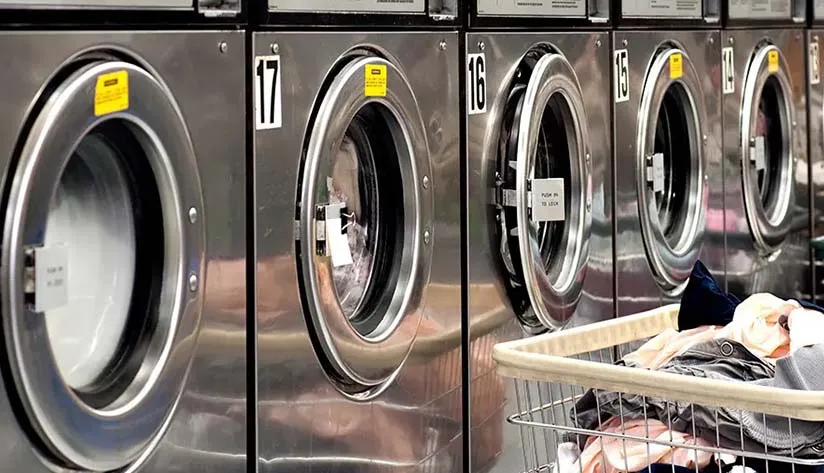
5. Cost and Return Analysis of RFID Laundry Tags
While the initial investment for RFID laundry tags can be high, the long-term returns can significantly enhance efficiency and reduce operational costs. Below is a brief analysis of costs and returns:
5.1 Implementation Costs
Tag Costs: RFID laundry tags are relatively affordable, but a significant investment is required when purchasing in bulk. The durability of the tags will also affect long-term costs.
Equipment and Infrastructure: The need for RFID readers, scanners, and other hardware means that initial equipment costs can be substantial.
Installation and Training: System installation and employee training represent additional necessary costs, especially for staff with no prior experience.
5.2 Long-Term Returns
Labor Cost Savings: Automated tracking reduces the need for manual intervention and management, resulting in improved work efficiency.
Reduction of Loss and Misplacement: An accurate tracking system effectively minimizes issues of loss and misdelivery, avoiding extra expenses.
Increased Efficiency: RFID technology speeds up the processing of laundry items, shortening cleaning and delivery times.
Customer Satisfaction: Enhancing service quality ensures timely delivery and cleanliness, which boosts customer loyalty.
Improved Compliance: Helps ensure that the washing process meets industry standards, reducing legal and operational risks.
Although the initial investment for RFID laundry tags is substantial—including costs for tags, equipment, and installation training—this technology is undoubtedly a worthwhile investment in the long run. By improving work efficiency, reducing item loss, and enhancing customer satisfaction, RFID systems not only significantly lower operational costs but also yield ongoing benefits, particularly in saving on labor, increasing processing speed, and ensuring compliance. Overall, the returns on RFID laundry tags far outweigh their initial costs, making them an effective solution for enhancing operational efficiency in hotels, healthcare, and commercial laundry services.

Frequently Asked Questions (FAQ)
1 Are RFID laundry tags suitable for all types of hotels or healthcare facilities?
RFID laundry tags are applicable to most types of hotels and healthcare facilities, especially those that manage large quantities of linens, towels, patient gowns, and other items that require frequent cleaning. However, for some smaller hotels or resource-limited healthcare facilities, the initial investment may be relatively high. That said, as technology becomes more widespread and costs decrease, RFID tags are likely to become increasingly suitable for various sizes of hotels and healthcare institutions. This is particularly true for large hotel chains and healthcare providers, where the advantages of RFID tags in improving efficiency and reducing item loss are more pronounced.
2 Can RFID tags withstand damage during washing?
Modern RFID laundry tags are designed to withstand the environmental impacts of the washing process. Many RFID tags are made from waterproof, oil-resistant, and dirt-resistant materials, enabling them to endure high temperatures, vigorous washing, and multiple cleanings. Nonetheless, selecting the appropriate type and quality of RFID tag is crucial. Generally, the tags commonly used in healthcare and hotel industries are specially treated to ensure durability during high-temperature washing and drying processes. If the durability of the tags is a concern, it’s advisable to choose certified high-durability tags.
RFID Laundry Tags: Revolutionizing Hotels, Healthcare & Commercial Laundry
In a world where efficiency and organization are paramount, RFID laundry tags emerge as a groundbreaking solution, transforming the way hotels, healthcare facilities, and commercial laundries manage their textiles. This innovative technology not only enhances operational efficiency but also elevates service quality, ensuring a seamless experience for both staff and guests.
What are RFID Laundry Tags?
RFID (Radio Frequency Identification) laundry tags are small, durable tags embedded with a chip and an antenna. These tags can be attached to various laundry items, including sheets, towels, uniforms, and more, providing unique identification for each piece. With the ability to be read from a distance, RFID technology eliminates many of the challenges associated with traditional laundry management methods.
Unique Features
- Durability: Designed to withstand harsh washing and drying cycles, RFID tags are resistant to water, heat, and bleach.
- Real-Time Tracking: Track items in real-time throughout the laundry process, ensuring nothing gets lost or misplaced.
- Automated Inventory Management: Streamline inventory checks with automated updates that reduce manual errors and save time.
- Enhanced Security: Prevent loss and theft of linens, uniforms, and other essential items with precise tracking capabilities.
Benefits for Various Industries
The impact of RFID laundry tags spans multiple sectors, each gaining unique benefits:
- Hotels: Improved guest satisfaction through timely and accurate linen service, reducing the chances of over or under-stocking items.
- Healthcare: Enhanced compliance and safety, ensuring that clean linens and uniforms are always available and properly tracked to avoid contamination risks.
- Commercial Laundry Services: Increased efficiency and productivity, allowing businesses to handle larger volumes of laundry with reduced labor costs and improved turnaround times.
The Value They Bring
Integrating RFID laundry tags into existing systems presents a multitude of advantages:
- Cost-Effective Solutions: By minimizing loss and optimizing inventory, organizations can significantly reduce operational costs.
- Sustainability: Reduce waste by tracking and maintaining the longevity of linens and uniforms, aligning with eco-friendly practices.
- Data Insights: Gain valuable analytics on laundry patterns and utilization rates, empowering businesses to make informed decisions.
As the hospitality, healthcare, and commercial sectors strive for excellence, RFID laundry tags stand at the forefront of innovation, offering a dynamic solution to traditional laundry management challenges. Embrace the RFID revolution and discover how this technology can enhance operations, improve service delivery, and ultimately drive customer satisfaction. Explore the possibilities that RFID laundry tags bring to your organization today!
Recommended Products
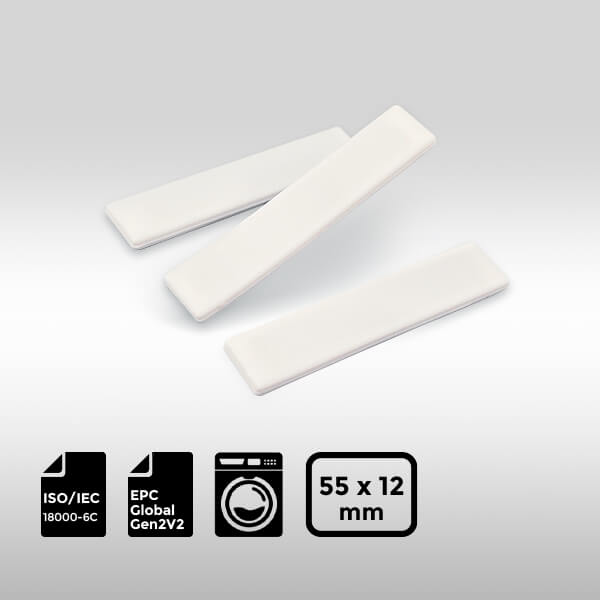
Impinj Monza® 4QT Silicone RFID Laundry Tag
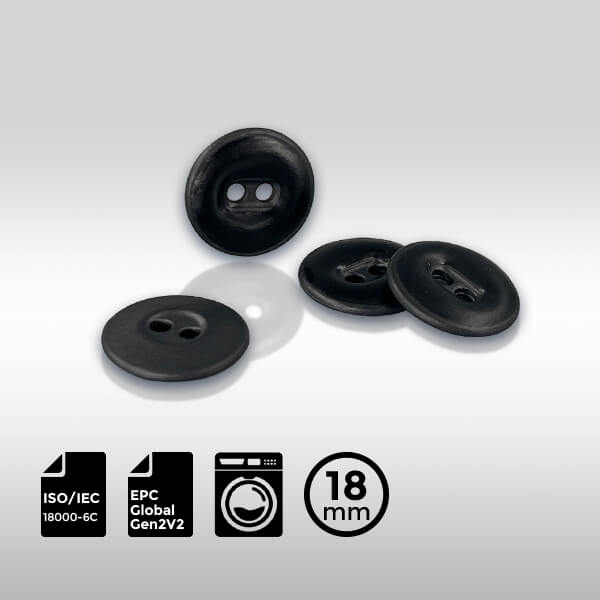
NXP UCODE® 7m PPS RFID Laundry Tag
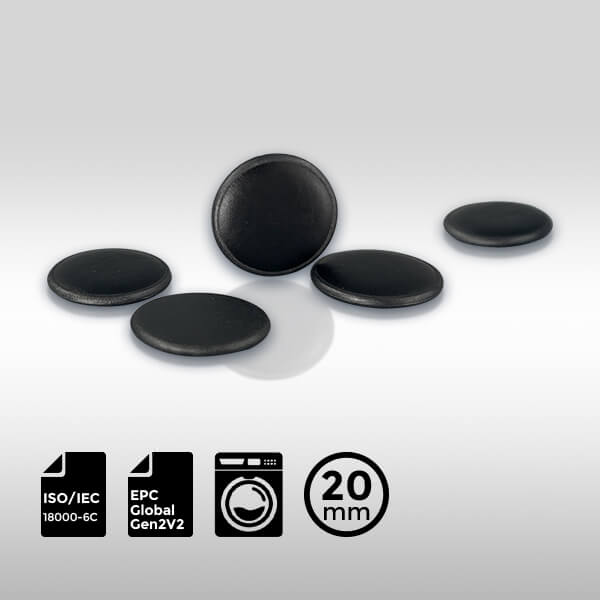
NXP UCODE® 7m PPS RFID Laundry Tag
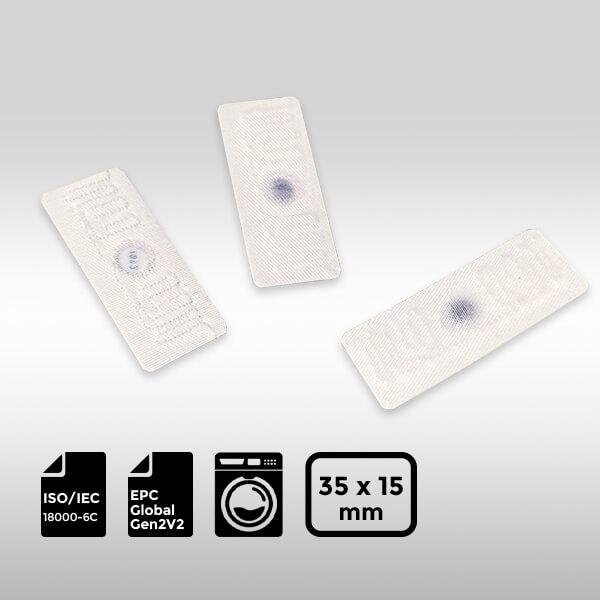
NXP UCODE® 9 Textile RFID Laundry Tag
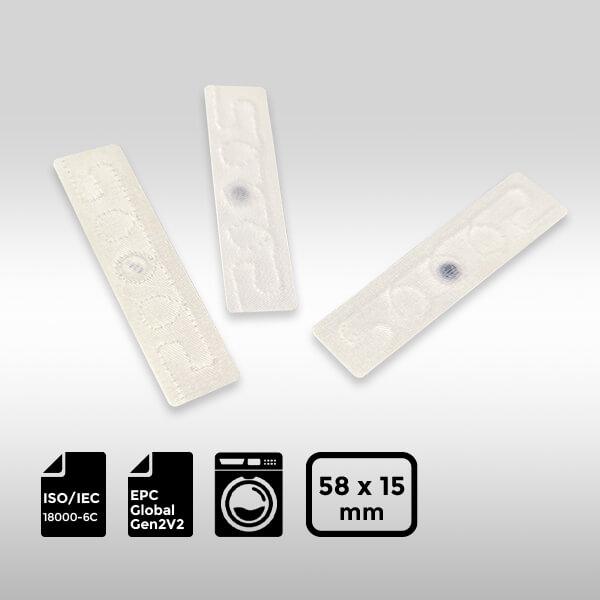
NXP UCODE® 9 Textile RFID Laundry Tag
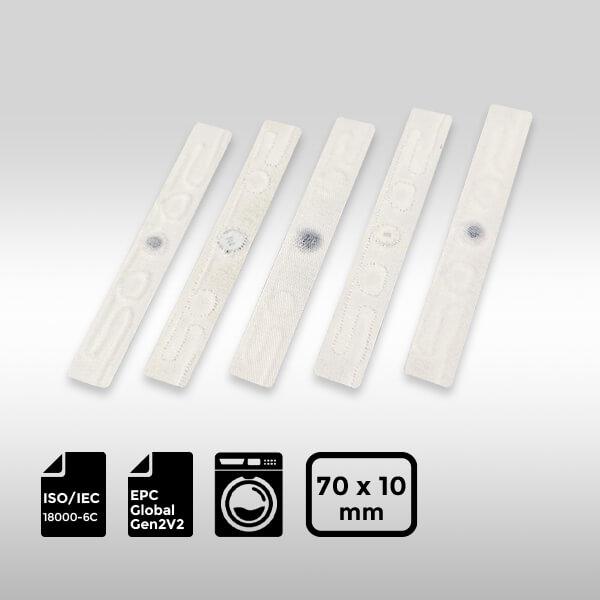
NXP UCODE® 9 Textile RFID Laundry Tag
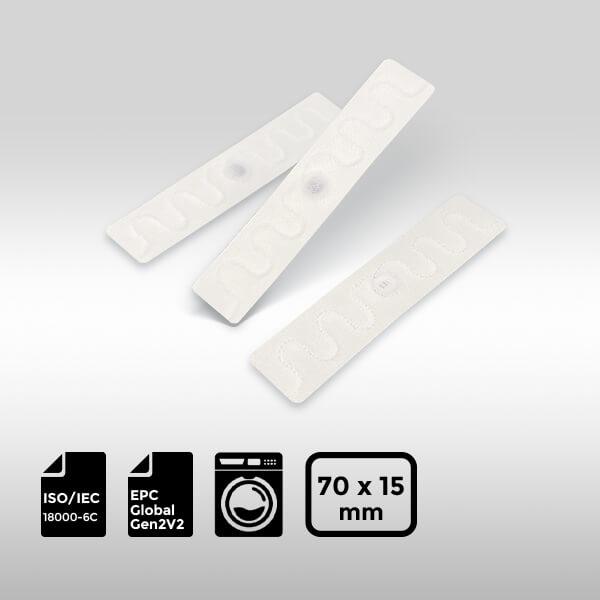
NXP UCODE® 9 Textile RFID Laundry Tag
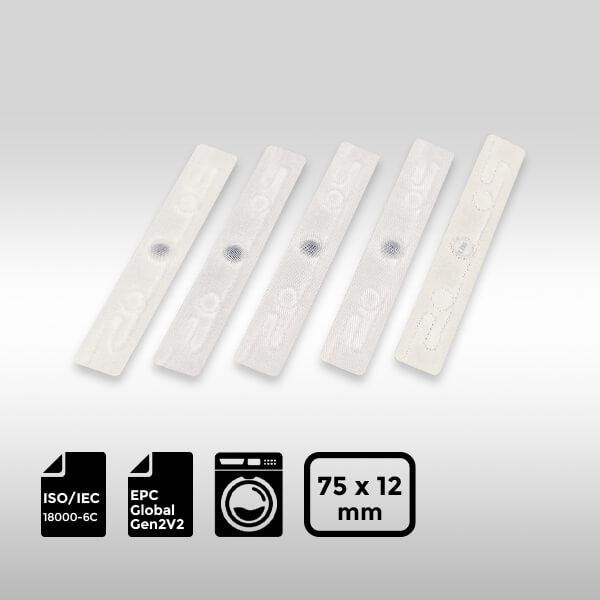
NXP UCODE® 9 Textile RFID Laundry Tag
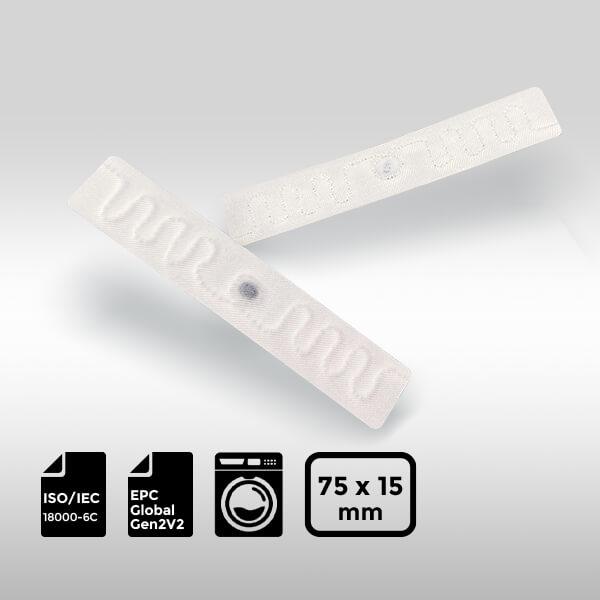
NXP UCODE® 9 Textile RFID Laundry Tag
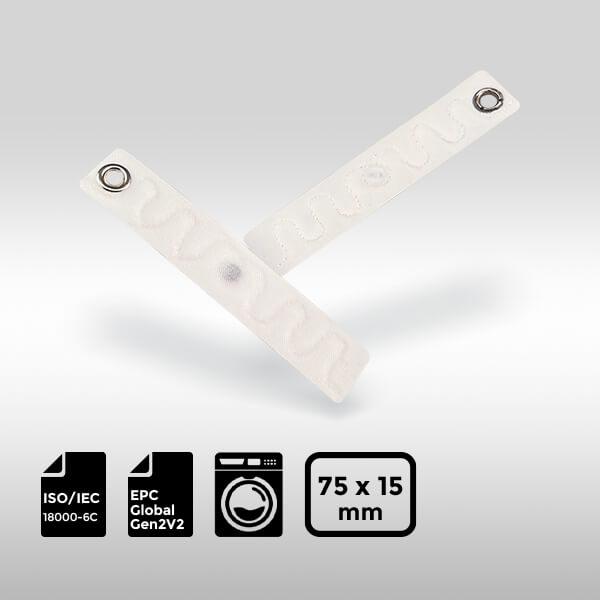
NXP UCODE® 9 Textile RFID Laundry Tag
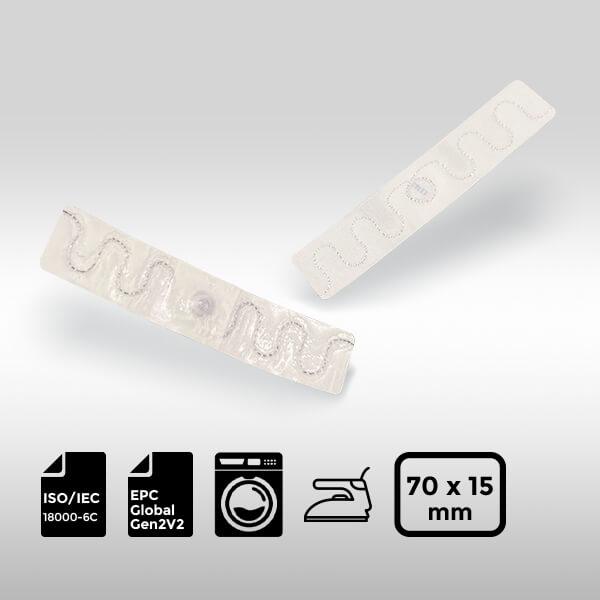
NXP UCODE® 9 Textile RFID Laundry Tag
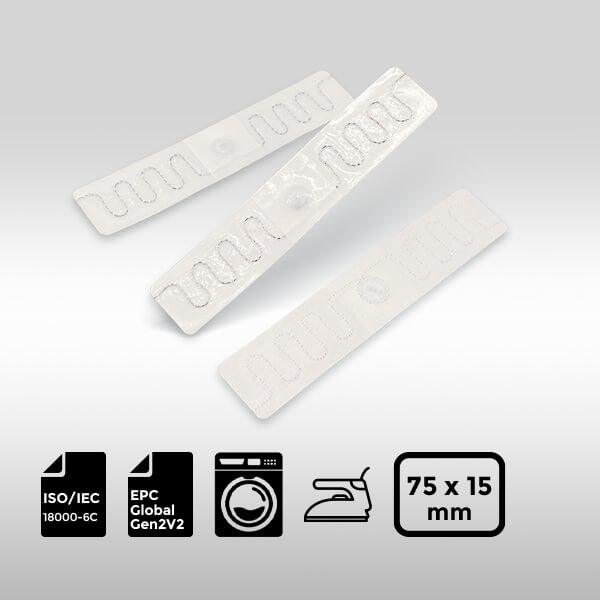

RFID Antenna UHF
15-Meter Cable for UHF RFID Fixed Reader
UHF Tag
4″x2″ 860-960MHz UHF RFID Label RFID M4D
UHF Tag
4″x4″UHF RFID Label Alien H3 | ISO18000-6C
RFID Antenna UHF
5-Meter Cable for UHF RFID Fixed Reader
HF Card
ABS RFID KEY-FOB Tag RFID Classic 1K
HF Card
ABS RFID KEY-FOB Tag RFID Classic 4K
HF Card
ABS RFID KEY-FOB Tag RFID Ultralight C
HF Tag
ABS RFID KEY-FOB Tag RFID Ultralight EV1
LF Card
ABS RFID KEY-FOB Tag ATA5577
LF Card
ABS RFID KEY-FOB Tag EM4200
HF Card
ABS RFID KEY-FOB Tag EM4305
HF Card
ABS RFID KEY-FOB Tag RFID TAG 213